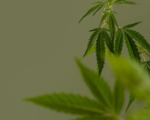Israel has announced a significant increase in the taxes on tobacco products, as part of its efforts to reduce smoking and raise public funds. The tax hike, which will take effect from March 1, 2024, will affect cigarettes, cigars, rolling tobacco, and electronic cigarettes. The move is expected to generate an additional 2.5 billion shekels ($750 million) in annual revenue for the state, as well as to improve the health and well-being of the population.
The tax hike was approved by the Israeli cabinet on Sunday, following a proposal by the Finance Ministry and the Health Ministry. According to the proposal, the tax on cigarettes will increase by 1.5 shekels ($0.45) per pack, from 9.5 shekels ($2.85) to 11 shekels ($3.30). The tax on cigars will increase by 20%, from 30% to 50% of the retail price. The tax on rolling tobacco will increase by 25%, from 100% to 125% of the retail price. The tax on electronic cigarettes will increase by 50%, from 20% to 30% of the retail price.

The tax hike will make Israel one of the countries with the highest tobacco taxes in the world, according to the Finance Ministry. The ministry estimates that the average price of a pack of cigarettes will rise by 10%, from 35 shekels ($10.50) to 38.5 shekels ($11.55). The ministry also expects that the tax hike will reduce the consumption of tobacco products by 5% to 10%, and prevent about 1,000 deaths from smoking-related diseases per year.
The reasons for the tax hike
The tax hike is part of Israel’s efforts to curb smoking and promote public health, as well as to increase its fiscal revenue and reduce its budget deficit. Smoking is one of the leading causes of death and disease in Israel, affecting about 20% of the adult population and costing the health system about 8 billion shekels ($2.4 billion) per year. Smoking is also associated with higher risks of cancer, cardiovascular diseases, respiratory diseases, and COVID-19 complications.
The tax hike is also aimed at boosting the state’s income and balancing its budget, which has been strained by the COVID-19 pandemic and the political instability. The pandemic has caused a sharp decline in the economic activity and the tax collection, resulting in a record-high deficit of 11.6% of the gross domestic product (GDP) in 2021. The political instability has prevented the formation of a stable government and the approval of a state budget for three years, creating uncertainty and inefficiency in the public spending.
The tax hike is expected to generate an additional 2.5 billion shekels ($750 million) in annual revenue for the state, which will be allocated to various social and economic purposes, such as health, education, welfare, and infrastructure. The tax hike is also expected to create a positive impact on the environment, by reducing the pollution and the waste from tobacco products.
The reactions to the tax hike
The tax hike has received mixed reactions from different sectors and groups in Israel. The Health Ministry and the anti-smoking organizations have welcomed the tax hike, saying that it will save lives and improve the quality of life of the smokers and their families. They have also urged the government to implement other measures to prevent smoking, such as banning the advertising and the display of tobacco products, enforcing the smoking ban in public places, and providing support and treatment for the smokers who want to quit.
The tobacco industry and the smokers’ rights groups have criticized the tax hike, saying that it will hurt the consumers and the businesses, and create a black market for tobacco products. They have also argued that the tax hike is unfair and discriminatory, as it targets only the smokers and not the users of other harmful substances, such as alcohol and cannabis. They have also claimed that the tax hike will not reduce smoking, but only encourage the smokers to switch to cheaper and lower-quality products, which may pose greater health risks.
The tax hike has also sparked a debate among the economists and the policy makers, who have different views on the effectiveness and the implications of the tax hike. Some economists have supported the tax hike, saying that it will correct the negative externalities of smoking, and create a win-win situation for the society and the state. They have also suggested that the tax hike will not have a significant impact on the inflation and the cost of living, as tobacco products are not essential goods and have a low price elasticity of demand.
Other economists have opposed the tax hike, saying that it will reduce the disposable income and the purchasing power of the smokers, and have a negative effect on the economic growth and the employment. They have also warned that the tax hike will create a distortion and a inefficiency in the market, and encourage tax evasion and smuggling. They have also questioned the allocation and the transparency of the tax revenue, and the accountability and the responsibility of the government.
Maria Garcia is an award-winning author who excels in creating engaging cannabis-centric articles that captivate audiences. Her versatile writing style allows her to cover a wide range of topics within the cannabis space, from advocacy and social justice to product reviews and lifestyle features. Maria’s dedication to promoting education and awareness about cannabis shines through in her thoughtfully curated content that resonates with both seasoned enthusiasts and newcomers alike.








